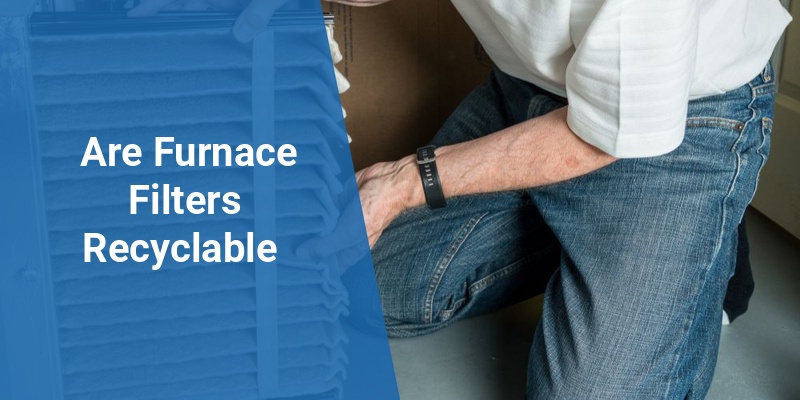Furnace filters play a crucial role in maintaining indoor air quality by trapping dust, allergens, and other particles. With increasing environmental awareness, many Americans are asking, “Are furnace filters recyclable?” Understanding the recyclability of these filters can help homeowners and businesses make informed decisions about disposal and sustainability. This article explores the types of furnace filters, their materials, and how to properly dispose of or recycle them to minimize environmental impact.
| Furnace Filter Type | Material Composition | Recyclability | Proper Disposal |
|---|---|---|---|
| Fiberglass | Glass fibers, synthetic materials | No (not recyclable) | Regular trash, sealed in a bag |
| Pleated (Synthetic or Cotton) | Polyester, cotton blend | No (rarely recyclable) | Trash, possible compost if organic |
| Electrostatic | Plastic and synthetic fibers | No (generally not recyclable) | Trash |
| HEPA | Specialized synthetic materials | No (special disposal may be required) | Check local waste regulations |
| Reusable/Washable Filters | Metal mesh or durable plastic | Yes (depending on material and local programs) | Recycle metal parts or clean and reuse |
Understanding Common Furnace Filter Types and Their Materials
Furnace filters come in various types, primarily based on their filtration efficiency and materials used. The most common types are fiberglass, pleated, electrostatic, HEPA, and reusable washable filters. Each type has unique material composition that directly affects its recyclability.
Fiberglass filters consist mainly of glass fibers embedded in a resin. They are affordable but have low filtration efficiency and are typically disposable.
Pleated filters
Electrostatic filters feature synthetic fibers designed to attract dust particles via static charge, but their mixed synthetic composition limits recyclability.
HEPA filters are manufactured with specialized synthetic materials that require careful disposal due to their dense fibers trapping contaminants.
Reusable or washable filters often use metal mesh or durable plastics, which can be cleaned, reused, and often recycled at suitable centers.
Call 888-906-9139 for Free Local HVAC Quotes – No Obligation, Just Savings!
Factors Affecting the Recyclability of Furnace Filters
The recyclability of furnace filters depends on several critical factors:
- Material Composition: Mixed materials, synthetic fibers, and adhesives hinder recycling processes.
- Contamination Level: Filters laden with dust, pollen, or biological contaminants require special handling.
- Local Recycling Facilities: Recycling capabilities vary by region; some centers accept certain filter components, while others do not.
- Filter Size and Structure: Bulky or flexible filters may be difficult for standard recycling machinery to process.
How to Properly Dispose of Furnace Filters
Since most furnace filters are not recyclable, proper disposal is essential to avoid environmental harm. Homeowners should:
- Seal Used Filters in Plastic Bags to prevent dust and allergens from dispersing during disposal.
- Follow Local Waste Collection Guidelines: Check municipal rules about disposing household air filters.
- Consider Composting Natural Fiber Filters: If filters are made from organic materials like cotton and free from harmful chemicals, composting might be an option.
- Reuse or Recycle Metal Frames: For reusable filters with metal parts, separate the frame and recycle it accordingly.
Recycling Options for Specific Furnace Filter Components
Some parts of furnace filters, particularly metal frames and washable filter elements, offer recycling opportunities:
- Metal Frames: Many reusable filters include frames made of aluminum or steel, which can be recycled through scrap metal programs.
- Washable Filters: These filters can be cleaned and reused multiple times, reducing waste generation.
- Specialty Recycling Programs: Certain manufacturers and recycling centers may offer take-back programs for specific filter brand models.
Environmental Impact of Disposing Furnace Filters in Landfills
Discarding furnace filters in landfills contributes to environmental challenges such as:
- Release of Captured Particles: Dust, allergens, and other trapped contaminants may leach into soil and water.
- Non-Biodegradability: Synthetic fibers and plastics in many filters degrade slowly, increasing landfill burden.
- Potential Chemical Exposure: Some filters use adhesives or chemicals posing environmental risks over time.
Tips for Choosing Environmentally Friendly Furnace Filters
Consumers seeking to minimize waste and environmental impact can consider:
- Reusable or Washable Filters: These reduce replacement frequency and waste.
- Filters Made from Natural or Biodegradable Materials: Though less common, these filters break down more easily after disposal.
- Filters with High MERV Ratings: Filters efficiently capturing more particles reduce indoor pollutants and may extend life by preventing buildup.
Best Practices for Maintaining Furnace Filters to Extend Their Lifespan
Proper maintenance can extend the usefulness of filters and reduce environmental impact:
- Regular Inspection: Check filters monthly during heavy heating or cooling seasons.
- Cleaning Reusable Filters: Follow manufacturer instructions to rinse and dry washable filters.
- Timely Replacement: Replace disposable filters every 1-3 months depending on usage to ensure efficiency without generating excessive waste.
